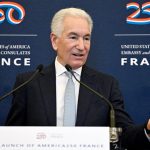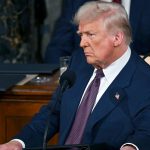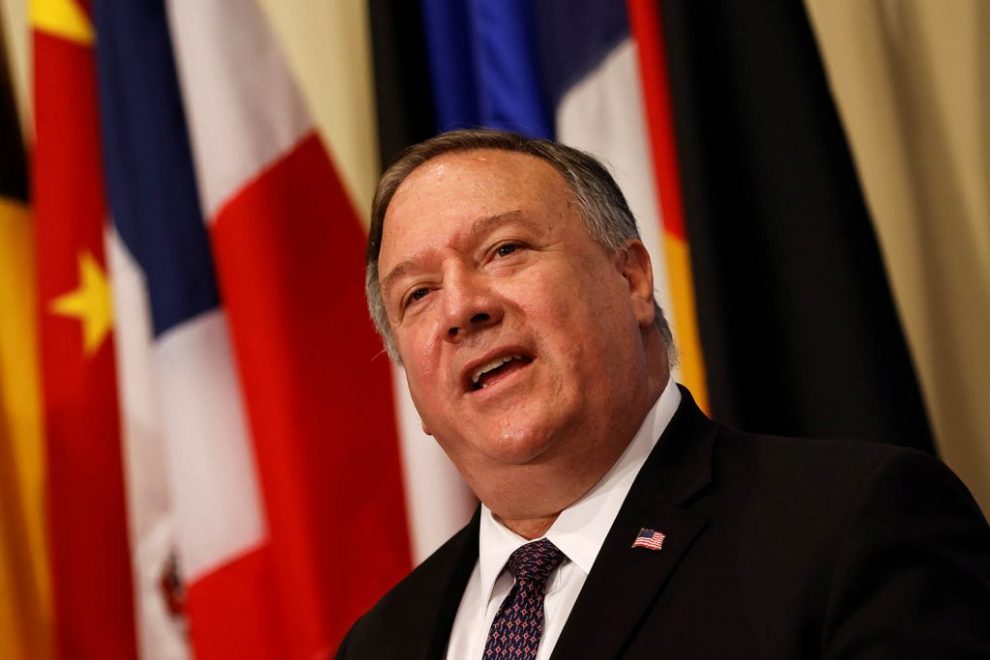Secretary of State Mike Pompeo told Breitbart News exclusively that President Donald Trump and his administration have successfully exposed the Chinese Communist Party as the most significant threat to the United States – something he hopes will last long into the future.
Thanks to the work of Trump and his administration, Pompeo said, combined with the Chinese Communist Party’s coverup of the origins of the coronavirus pandemic, the Chinese Communist Party and its influence operations across the country and around the world are well known and public. The CCP, the president’s top diplomat and former CIA director argued, was able to operate in the shadows with impunity for years—but now it can no longer hide its agenda and actions from the world.
“The CCP has now shown itself,” Pompeo said. “It frankly didn’t for a long time. We can now see it. Each time we push back, you can see it more clearly. Each time we talk about how this virus emanated from Wuhan, China, the Chinese try to tell a story that it came from Italy or it came from American soldiers. I think the story this week was it came from packaged food. This is false and disinformation. We are unraveling their narrative. We have taken this seriously because Xi Jinping is taking making China the Middle Kingdom—a global hegemony—seriously. So we have a responsibility to get this right.”
Pompeo is traveling to Georgia Tech on Wednesday to deliver a speech about Chinese influence operations on American college campuses and the threat they represent to the United States. Some on the left and in the establishment media have raised concerns that Pompeo appearing in Georgia—where there are two ongoing U.S. Senate runoffs that could determine majority control in the U.S. Senate—is a political trip disguised as official business. Upcoming on Jan. 5, both GOP Sens. Kelly Loeffler (R-GA) and David Perdue (R-GA) will face Democrats Rev. Raphael Warnock and Jon Ossoff respectively. Republicans will definitely have at least 50 U.S. Senate seats next year, and Democrats will definitely have at least 48. If the Democrats were to take these two seats, that would mean the Senate would deadlock in a 50-50 tie. In such a scenario, whoever the Vice President of the United States is would cut the ties. As it stands now, Democrat presidential candidate former Vice President Joe Biden leads in enough states that have certified their election results to win the White House next year, but President Trump is continuing with a challenge of the results. If that challenge is unsuccessful, Biden would become the president and his running mate, Sen. Kamala Harris (D-CA), would become the vice presiden, making her the tie-breaking vote in the Senate in such a scenario.
Asked about the Senate majority, and the White House next year, as it relates to China policy, Pompeo pointed to what he described as a growing bipartisan consensus on the threat of the Chinese Communist Party to the United States. He credited Trump for building that consensus and waking up both parties to the threat from Beijing.
“There is actually a significant bipartisan consensus on China,” Pompeo said. “I’ve seen that when we’ve dealt with human rights issues and the like. But it took President Trump. It took President Trump to pull the bandaid off and recognize the challenge that the Chinese Communist Party presented. So I hope whoever is president and whenever they are president, I hope that leader will conclude the same way our administration has that this is necessary for American national security.”
As for his trip to Georgia Tech, Pompeo made clear this is not despite his critics’ claims a political trip but one focused on exposing the threat of CCP malign influence on American campuses. He pointed to a recent speech from Director of National Intelligence John Ratcliffe, who similarly has raised the alarm about such threats from the Chinese.
“As for my trip to Georgia, this is a speech about Chinese influence operations,” Pompeo said. “The DNI spoke about this issue a week ago or so—Chinese influence operations and the work they’re doing, the lobbying they’re doing on American college campuses and how this impacts American national security. Georgia Tech is one of America’s premiere research institution, and so I’m going to go down there and talk about how the Chinese have infiltrated these institutions and are using our own knowledge against us to create wealth for their people and create risk for ours. It’s a set of remarks I had intended to give back in the spring at another school, but the school ultimately said they didn’t want me to come down and do it—I think those are connected ideas. They didn’t want me to be there for the very reasons of the topic I intended to speak about, and then we got caught up with school being out because of COVID and the like, so we’ve settled on this week at Georgia Tech. I’m looking forward to it because it’s an important round out to this narrative I’ve been talking about with regard to national security and China for the last two and a half years.”
The U.S. House just passed legislation that had passed the Senate earlier this year that could lead to Chinese companies being delisted from U.S. stock exchanges if they are government-backed companies like many Chinese firms are.
Asked about this legislation, and whether he spoke to the president about it, Pompeo said he was not sure about the particular bill but did say the president’s entire approach to China has been first and foremost an economic issue.
“It’s very clear the president began in understanding this as an economic issue. He began with tariffs,” Pompeo said. “Then the work we’ve done in making sure they’re not using telecommunications infrastructure like Huawei to steal data and information. We’ve pushed back on IP theft as well. So your point about investment issues, we’ve also strengthened the CFIUS laws—the rule that governs how Chinese companies can invest in the United States. We’ve simply said this ought to be fair and reciprocal. If an American company can’t invest in China on a certain set of terms, why should a Chinese company be allowed to invest here? This set of legislation you’re describing I think relates to that. That is if they’re going to raise capital and use our markets, they ought to have the same set of rules for accounting and reporting that any company from anyplace else in the world ought to have. I think that makes enormous sense, and it’s consistent with the president’s idea of fairness and reciprocity between every country. We shouldn’t have a separate set of rules for China.”
What’s more, no matter who is president next year—Trump or Biden, depending on how the president’s challenges go—and no matter what happens in future elections, Pompeo believes that the Trump administration’s approach to the Chinese Communist Party is going to be “lasting” because of the work they have done to expose the threat to the American public and to the world. He also argued that this represents a broader fight between “freedom and tyranny,” and that he is confident freedom will win the day in the long run.
“It will be lasting. The work that we’ve done around the world as well to inform the world about these risks has now convinced people all across the world about the challenge that the CCP presents. That will mean this is lasting,” Pompeo said. “That will mean the Chinese Communist Party will not be able to count on countries across the world bending the knee for them and appeasing them but rather they will see the world is united. They will see this isn’t just a battle between the U.S. and China, but rather this is about what the world is going to look like. Is it going to be a world governed by authoritarians who don’t want the rule of law and sovereignty, or is it going to be the model that has made the world so successful for the last 100 years—the rule of law, nation states acting in their own best interest? Tha’s the competition between freedom and tyranny and I am very confident that the work that President Trump and our administration has done will put the world in a place where freedom will prevail.”
Story cited here.
























